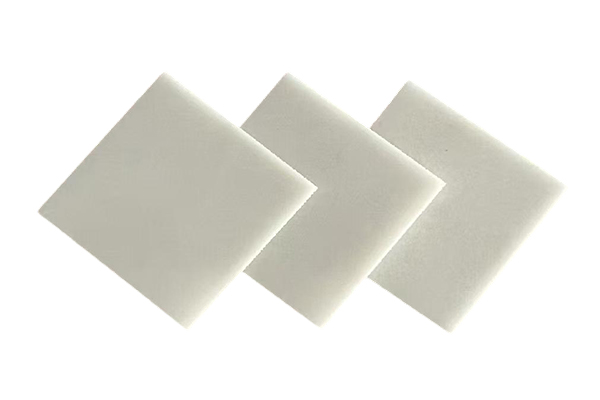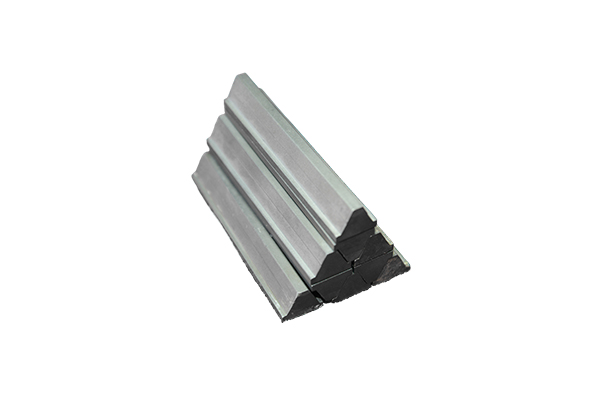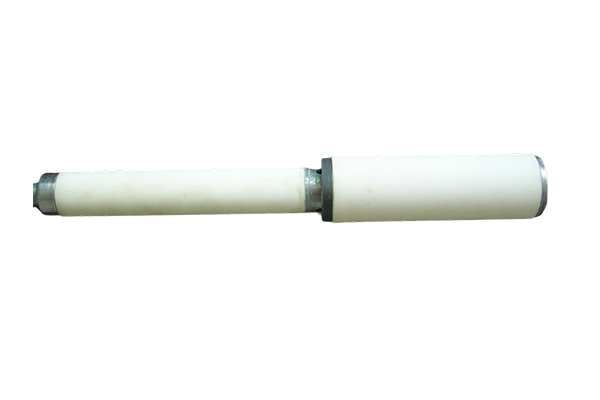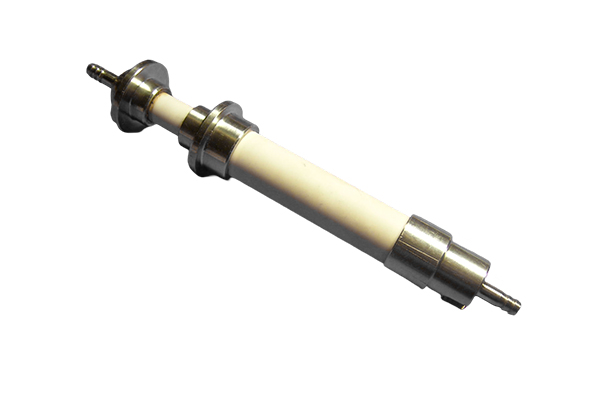Compared with traditional metal spoons, in which specific areas does ceramic spoon show superior application value?
Release Time : 2024-12-19
Ceramic spoons show superior application value than traditional metal spoons in certain specific areas, mainly due to their unique physical and chemical properties.
1. Kitchen cooking
Heat resistance: Ceramic spoons have extremely high heat resistance and can be used in high temperature environments. They will not deform or produce harmful substances due to high temperature like metal spoons. For example, when stewing or making soup, ceramic spoons will not react chemically with the ingredients, which is safer.
Non-thermal conductivity: The thermal conductivity of ceramic spoons is low, and the grip part will not heat up quickly, making it safer and more comfortable to use and not hot.
Rust-free: Ceramic spoons will not rust, especially when in contact with acidic or alkaline ingredients, they will not corrode or rust as easily as metal spoons, extending their service life.
2. Food industry
Pollution-free: Ceramic spoons will not react chemically with food and will not release harmful substances. They are particularly suitable for the production and processing of high-demand food safety products, such as infant food and high-end health products.
Easy to clean: The ceramic surface is smooth, easy to clean and disinfect, reducing the risk of cross contamination and meeting the hygiene standards of the food industry.
3. Medicine and laboratory
Chemical stability: Ceramic spoons have high chemical stability and will not react with most chemical reagents, making them suitable for precise operations and experiments in laboratories. For example, in chemical analysis and biological experiments, the use of ceramic spoons can avoid the interference of metal ions on experimental results.
Non-magnetic: Ceramic spoons are not magnetic and are suitable for use in experimental environments that need to avoid magnetic field interference, such as nuclear magnetic resonance experiments.
4. Home decoration
Beautiful and diverse: The appearance of ceramic spoons can be designed very beautifully, with various colors and patterns, making them suitable for use as home decorations. Especially in restaurants and cafes, ceramic spoons can not only provide beautiful visual effects, but also enhance the dining experience.
Cultural value: Ceramic spoons have certain cultural and artistic value and can be used as works of art or collectibles for display or gifting.
5. Environmental protection
Degradable: Some types of ceramic spoons can be naturally degraded under certain conditions to reduce pollution to the environment. In contrast, metal spoons, especially discarded metal spoons after use, may take longer to degrade, causing greater pressure on the environment.
Resource cycle: Ceramic materials can be recycled and reused to reduce resource waste, which is in line with the concept of sustainable development.
6. Use by special groups
Elderly and children: The lightness and non-heat conductivity of ceramic spoons make them more suitable for use by the elderly and children. The elderly may have weak hand strength, so it is more convenient to use a lightweight ceramic spoon; when children use ceramic spoons, they will not be burned or cut even if they accidentally knock over.
7. Artistic creation
Handmade: Ceramic spoons can be handmade, with unique artistry and creativity. Many artists and craftsmen like to make ceramic spoons of various shapes and decorations to display or sell as works of art.
In summary, ceramic spoons show obvious superiority in the fields of kitchen cooking, food industry, medicine and laboratories, home decoration, environmental protection, use by special groups, and artistic creation. Its unique physical and chemical properties make it more advantageous in these specific applications.
1. Kitchen cooking
Heat resistance: Ceramic spoons have extremely high heat resistance and can be used in high temperature environments. They will not deform or produce harmful substances due to high temperature like metal spoons. For example, when stewing or making soup, ceramic spoons will not react chemically with the ingredients, which is safer.
Non-thermal conductivity: The thermal conductivity of ceramic spoons is low, and the grip part will not heat up quickly, making it safer and more comfortable to use and not hot.
Rust-free: Ceramic spoons will not rust, especially when in contact with acidic or alkaline ingredients, they will not corrode or rust as easily as metal spoons, extending their service life.
2. Food industry
Pollution-free: Ceramic spoons will not react chemically with food and will not release harmful substances. They are particularly suitable for the production and processing of high-demand food safety products, such as infant food and high-end health products.
Easy to clean: The ceramic surface is smooth, easy to clean and disinfect, reducing the risk of cross contamination and meeting the hygiene standards of the food industry.
3. Medicine and laboratory
Chemical stability: Ceramic spoons have high chemical stability and will not react with most chemical reagents, making them suitable for precise operations and experiments in laboratories. For example, in chemical analysis and biological experiments, the use of ceramic spoons can avoid the interference of metal ions on experimental results.
Non-magnetic: Ceramic spoons are not magnetic and are suitable for use in experimental environments that need to avoid magnetic field interference, such as nuclear magnetic resonance experiments.
4. Home decoration
Beautiful and diverse: The appearance of ceramic spoons can be designed very beautifully, with various colors and patterns, making them suitable for use as home decorations. Especially in restaurants and cafes, ceramic spoons can not only provide beautiful visual effects, but also enhance the dining experience.
Cultural value: Ceramic spoons have certain cultural and artistic value and can be used as works of art or collectibles for display or gifting.
5. Environmental protection
Degradable: Some types of ceramic spoons can be naturally degraded under certain conditions to reduce pollution to the environment. In contrast, metal spoons, especially discarded metal spoons after use, may take longer to degrade, causing greater pressure on the environment.
Resource cycle: Ceramic materials can be recycled and reused to reduce resource waste, which is in line with the concept of sustainable development.
6. Use by special groups
Elderly and children: The lightness and non-heat conductivity of ceramic spoons make them more suitable for use by the elderly and children. The elderly may have weak hand strength, so it is more convenient to use a lightweight ceramic spoon; when children use ceramic spoons, they will not be burned or cut even if they accidentally knock over.
7. Artistic creation
Handmade: Ceramic spoons can be handmade, with unique artistry and creativity. Many artists and craftsmen like to make ceramic spoons of various shapes and decorations to display or sell as works of art.
In summary, ceramic spoons show obvious superiority in the fields of kitchen cooking, food industry, medicine and laboratories, home decoration, environmental protection, use by special groups, and artistic creation. Its unique physical and chemical properties make it more advantageous in these specific applications.








